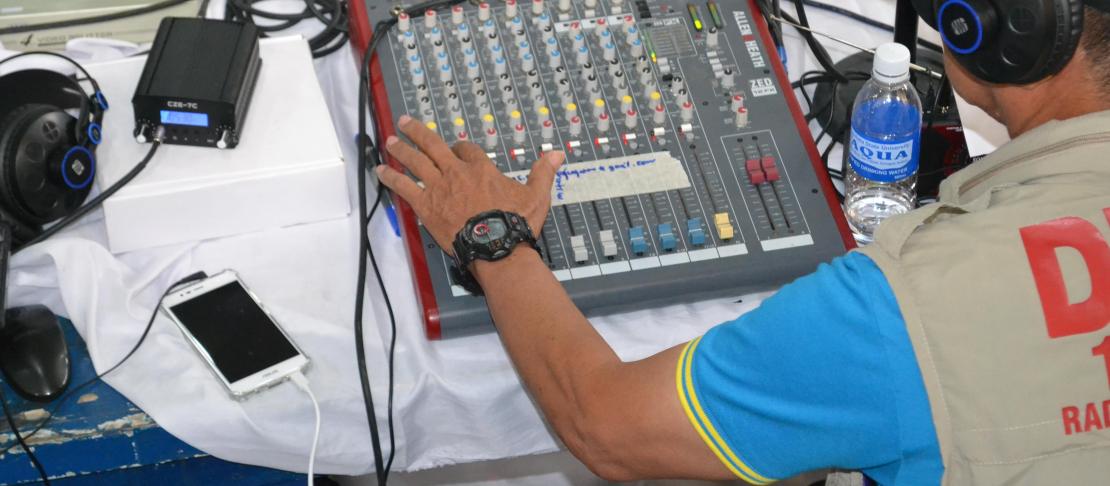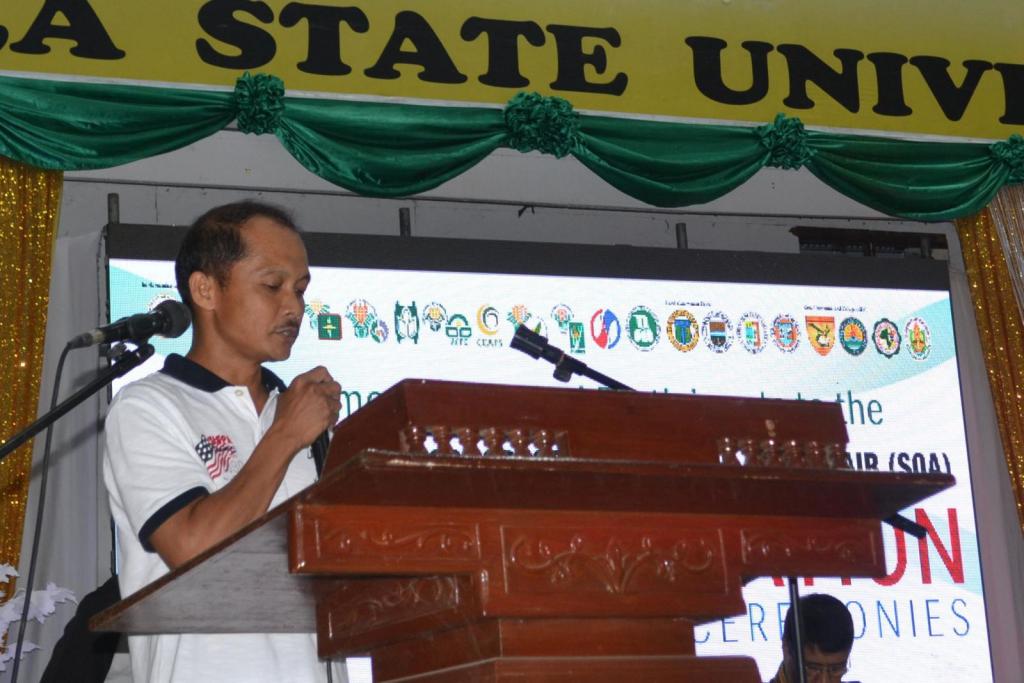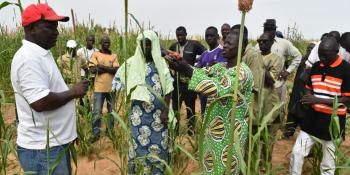Climate-smart farmers in Cagayan Valley, Philippines graduate from school-on-the-air program

Even with the rise of digital media, radio still plays a vital role in communicating about climate change and climate-smart agriculture, especially to vulnerable sectors in rural areas.
In Cagayan Valley in the Philippines, 4,645 farmers graduated from a five-month school-on-the-air (SOA) program on 24 August 2018 at the Isabela State University (ISU) in Echague, Isabela. Kaalamang Pagsasaka sa Himpapawid: A School-on-the-Air Project on Climate-Smart Agriculture in Cagayan Valley educated the farmers about climate change and introduced them to climate-smart agriculture (CSA) to help them thrive under current climatic conditions.
The SOA program was implemented by the Philippine Federation of Rural Broadcasters, Philippine Agricultural Journalists, Inc., and Department of Agriculture (DA), and was funded by the CGIAR Research Program on Climate Change, Agriculture and Food Security in Southeast Asia (CCAFS SEA).
Attached agencies of the DA, the Philippine Atmospheric, Geophysical and Astronomical Services Administration, local government units, and state universities and colleges in Cagayan Valley also joined in implementing the SOA program, which aired from March to August 2018.
After the graduation ceremony, a regional congress for the farmers was held to discuss the insurance and credit programs of DA. These DA programs are dedicated to financing farming activities; providing essential farming machinery, equipment, and facilities; and minimizing the spread of risks posed by natural disasters and pests and diseases.
“A region-wide school (on air)”
The SOA program covers four of the five provinces of Cagayan Valley: Cagayan, Isabela, Nueva Vizcaya, and Quirino. Isabela has the highest number of graduates (2,715), followed by Cagayan (1,030), Nueva Vizcaya (700), and Quirino (200).
Dir. Narciso Edillo, Regional Executive Director of DA Regional Field Office 2, commended the program, which fostered multi-sectoral and multi-stakeholder engagement among the local government units, state universities and colleges, government offices, non-government organizations, and international partners. He lauded the use of radio to facilitate interactions among farmers, intermediaries, and experts.
Hon. Francis Tolentino, Presidential Adviser for Political Affairs, also admired the SOA program, which, he said, is a creative and innovative way to deliver services for the people. He pledged that agriculture remains a priority of the national government and promised to share the SOA story of Cagayan Valley with President Rodrigo Duterte.
 The SOA program awarded the top performing farmers and provinces. Mr. Marlon Edralin, a farmer from Isabela, was recognized as the most outstanding farmer. Photo: Renz Louie Celeridad (CCAFS SEA)
The SOA program awarded the top performing farmers and provinces. Mr. Marlon Edralin, a farmer from Isabela, was recognized as the most outstanding farmer. Photo: Renz Louie Celeridad (CCAFS SEA)
Mr. Marlon Edralin, a farmer from Luna, Isabela, was named as the Regional Outstanding Awardee. He credited the new lessons he learned to the SOA program and vowed to share them with his fellow farmers.
Financing mechanisms
The Philippine Crop Insurance Corporation offers insurance programs to farmers to protect their crops and other assets from natural disasters and from pests and diseases that are emerging on the farms. Its crop insurance for rice and corn farmers amounts to at least PHP 10,000, depending on farm size. The Agricultural Credit Policy Council provides easy-to-access loans for farmers and farmer associations to fund their farming activities and to help them access needed equipment and facilities. Loans range from PHP 25,000 to PHP 5 million, depending on the purpose.
Read More:
- News update: Next episode: Phase 2 of radio campaign on climate change
- Blog: Communicating climate-smart agriculture via School-on-the-Air
- News update: Linking knowledge with action: The role of media in climate change adaptation and mitigation
Renz Louie Celeridad is the Junior Communications Specialist for the World Agroforestry Centre Philippines. He also works as a Communications Consultant for CCAFS SEA.



